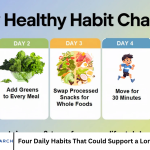The Weight Carried by Family Caregivers
Family caregivers manage more than tasks. They carry the emotional, physical, and mental load of looking after a loved one. That role is constant. It rarely ends at five o’clock or on weekends.
According to the AARP, over 53 million Americans provide unpaid care to family members. In Maryland, more than 800,000 residents are caregivers. Many juggle full-time jobs and family responsibilities while caring for an ageing parent or a relative with disabilities.
The result? High stress, sleep loss, and burnout. Without relief, caregivers risk health problems of their own.
What Respite Care Really Means
Respite care is a break. It provides short-term support for a loved one so the caregiver can rest, recharge, or handle personal needs. It may last a few hours or a few days. It can take place at home, in a day centre, or in a residential setting.
One caregiver described leaving her husband with a respite worker for the first time. “I went home, lay on the couch, and slept for 12 hours straight. It felt like I could breathe again.”
That break didn’t just restore her. It improved her ability to care for her husband the next day.
The Health Impact of Respite
The National Alliance for Caregiving reports that 40% of caregivers experience emotional stress and 20% report declining health. Studies show respite care reduces anxiety and depression while improving long-term outcomes for both caregiver and loved one.
Think of it like charging a phone. Without regular recharging, performance drops and eventually shuts down. Caregivers are no different.
Real-World Lessons
Certified Home Nursing Solutions has seen firsthand how respite changes outcomes. A daughter caring for her father admitted she felt guilty about asking for help. When she finally accepted respite care, her energy and patience improved. “I stopped snapping at him,” she said. “I could laugh with him again.”
Another family used respite so siblings could rotate caregiving. Each sibling got a chance to rest and focus on their own families. The result was a healthier balance and better long-term care for their mother.
Strategies to Reduce Burnout
Use Respite Regularly
Don’t wait until exhaustion hits. Schedule respite time weekly or monthly, even if things feel “fine.” Small breaks prevent major breakdowns.
Build a Support Network
Ask relatives or friends to cover specific tasks. Instead of vague offers to “help,” assign concrete roles like shopping, driving, or cooking.
Prioritise Self-Care
Caregivers often push their own health aside. Make time for medical checkups, exercise, and social activities. Even an hour a week can help.
Seek Professional Guidance
Therapists or counsellors can provide coping strategies. Talking to someone outside the situation helps process emotions.
Actionable Tips for Families
- Talk openly about the strain of caregiving. Don’t let guilt block conversations.
- Share responsibilities across siblings and relatives.
- Recognise burnout signs early—fatigue, irritability, and withdrawal.
- Encourage the caregiver to take time off without feeling guilty.
Actionable Tips for Communities
- Expand respite care programmes through local health centres and nonprofits.
- Create volunteer networks to give caregivers short breaks.
- Offer training workshops to prepare more people to step in when needed.
- Promote awareness so caregivers know support exists.
Breaking the Guilt Cycle
Many caregivers feel guilty stepping away. They worry their loved one will suffer or believe they should be able to handle it alone. This mindset is dangerous.
As one caregiver explained, “I thought taking a break meant I was failing. Then I realised not taking one was making me worse for my mom.”
Respite care isn’t abandonment—it’s reinforcement. It ensures both caregiver and client are supported.
The Future of Caregiving
By 2040, the U.S. will have 80 million seniors over the age of 65. The demand for caregiving will surge. Without respite systems, burnout will rise, and families will struggle.
Communities, health systems, and policymakers need to make respite care a standard part of caregiving. It’s not optional. It’s essential for sustainability.
Final Thought
Caregiving is a marathon, not a sprint. No one can run it without rest. Respite care is the lifeline that keeps caregivers strong, balanced, and able to provide quality support.
The next time a caregiver hesitates to take a break, remember this: recharging isn’t selfish—it’s survival.





